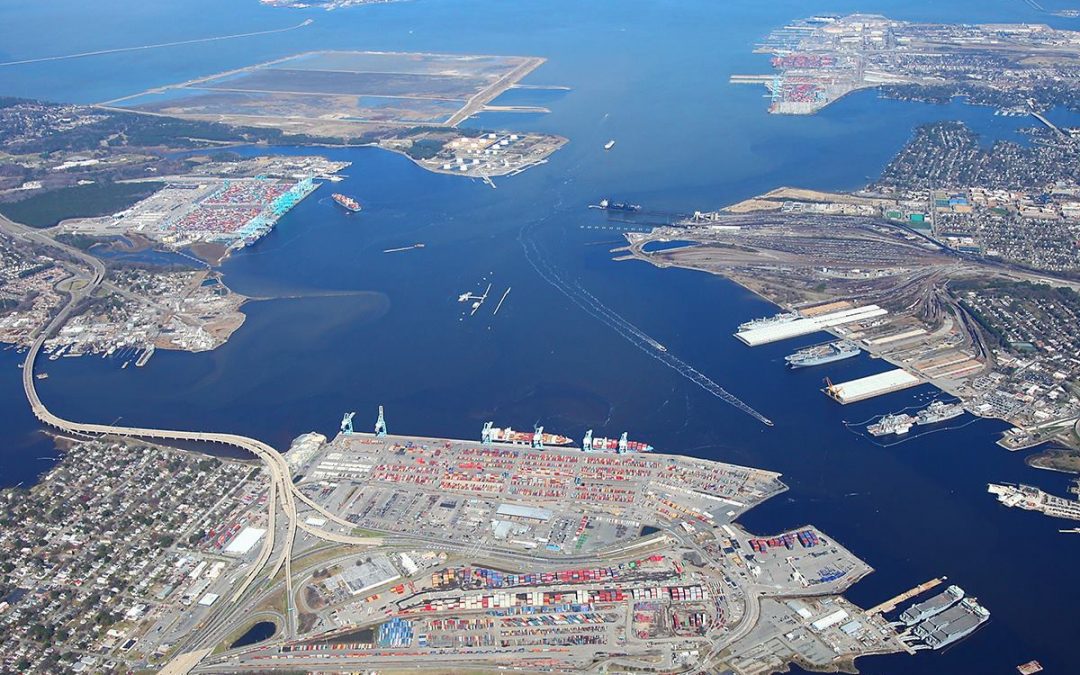The Port of Virginia has reached a landmark agreement to meet all of its electrical power needs from clean energy sources within two years.
The port already sources some of the power for its cargo terminal operations from renewables, and this is set to increase markedly. Through a power-purchase deal negotiated with utility Dominion Energy and the Virginia Department of Energy, the port will begin receiving up to 10 percent of the output of new solar power installations totaling about 350 megawatts of capacity. Along with other solar, nuclear and wind resources, the supply will be enough to cover the port’s load of 130,000 megawatt-hours per year. It will be sufficient to cover 100 percent of the port’s current electricity needs and support the growth of its future power requirements.
“We look forward to providing carbon-free energy to The Port of Virginia and supporting its efforts to become the first carbon neutral port on the U.S. East Coast by 2040,” said Robert M. Blue, Dominion Energy’s chair, president and CEO.
Dominion is also a leader in the Atlantic offshore wind space, and its Coastal Virginia Offshore Wind project is among the most ambitious in the budding sector. Blue noted that the Port of Virginia will play a role in supporting the installation and operations of new projects like CVOW.
The new agreement means that the port is running nearly 10 years ahead of schedule on its green power supply plan, a component of its long-running electrification and decarbonization strategy.
“Almost five years ago, we began to electrify our operation, audit carbon emissions, replace aging equipment with greener machines and make greater use of technology,” Virginia Port Authority CEO Stephen A. Edwards said. “As a result, more than one-third of the equipment we use on terminal today is electric and our use of technology is driving efficiency. This is a start that we’re proud of, but we know we can do better and this announcement is an important step forward.”
The Port of Virginia hopes to cut emissions by 65 percent by 2032 and achieve fully carbon neutral operations by 2040, ten years ahead of the Paris Climate Agreement target. The timeline ranks among the most ambitious decarbonization plans in the ports sector.
Source: The Maritime Executive






